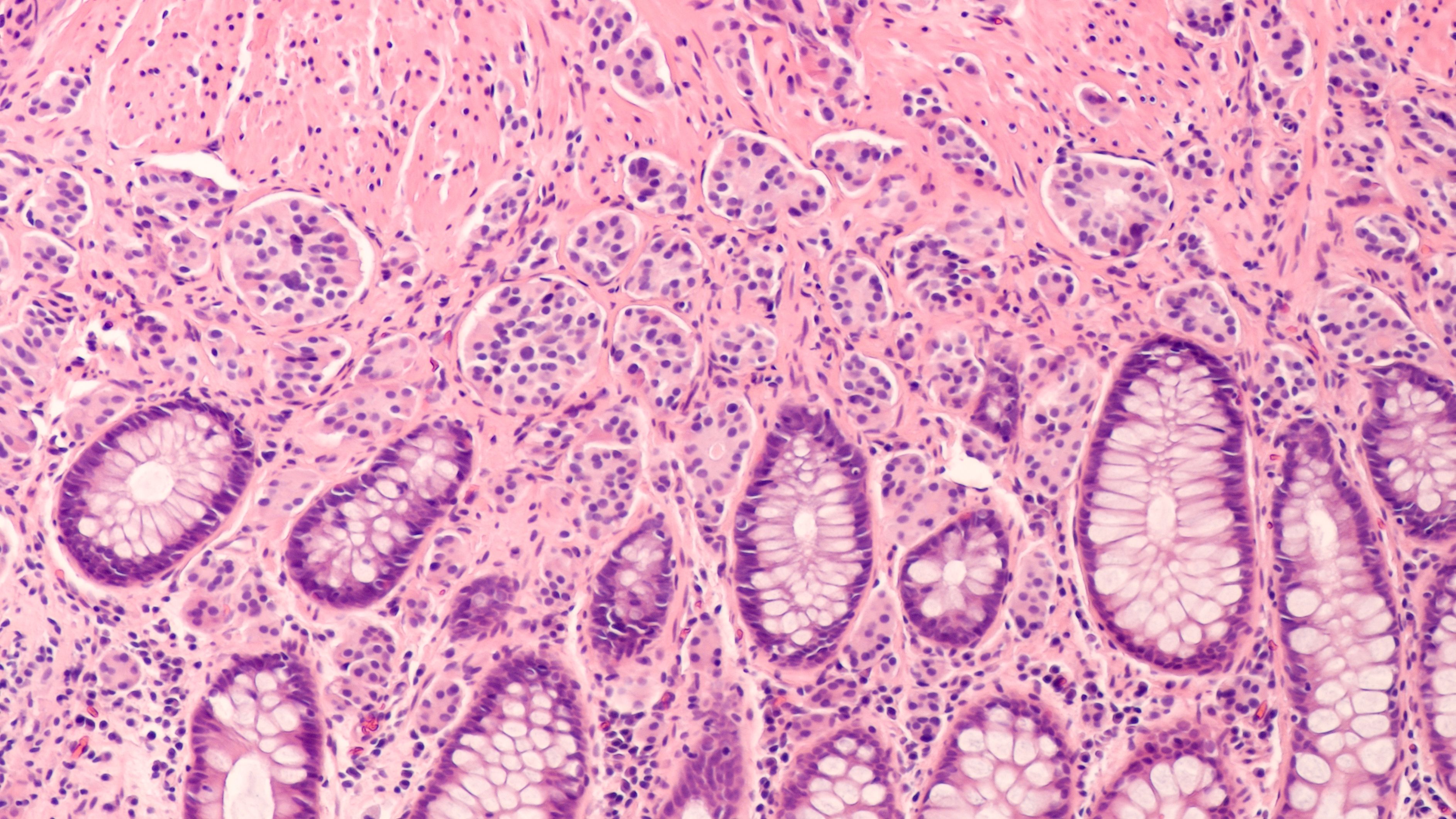FDA Approves Epcoritamab in Relapsed/Refractory Follicular Lymphoma
This FDA approval marks the first subcutaneous bispecific antibody to be approved in patients with relapsed/refractory follicular lymphoma.
Lymphomas: © David A Litman - stock.adobe.com

- Epcoritamab (Epkinly), a subcutaneous CD3xCD20 bispecific antibody, is now approved for the treatment of relapsed/refractory follicular lymphoma.
- This is the second indication for epcoritamab. The first is in relapsed/refractory third-line diffuse large B-cell lymphoma (DLBCL).
- The approval is supported by findings from the phase 1/2 EPCORE NHL-1 study (NCT03625037).
The FDA has granted accerlated approval to epcoritamab for the treatment of relapsed/refractory follicular lymphoma after 2 or more lines of therapy. This is the first subcutaneously delivered bispecific antibody to be approved in this intent-to-treat population.1
In November 2023, the FDA granted epcoritamab breakthrough drug designation for follicular lymphoma.2 Epcoritamab is also approved to treat relapsed/refractory third-line DLBCL.

The approval is supported by data from the phase 1/2 EPCORE NHL-1 study which were presented at the 2023 American Society of Hematology Annual Meeting.3 Among 127 patients with follicular lymphoma that were enrolled to receive epcoritamab, the overall response rate (ORR) was 82% (95% CI, 74.1%-88.2%) with a complete response (CR) rate of 60%.1 The median progression-free survival (PFS) was 15.4 months and the median duration of response, duration of CR, and overall survival were not reached by the data cut-off. Further, minimal residual disease (MRD) negativity was associated with improved PFS.1,3
Regarding safety, the most common any-grade treatment-emergent adverse events (TEAEs) were cytokine release syndrome (CRS; 66%), injection site reaction (57%), COVID-19 (40%), fatigue (30%), neutropenia (28%), diarrhea (27%), and pyrexia (25%). The most common reason for treatment discontinuation was COVID-19, and TEAEs that led to discontinuation occurred in 19% of patients. No patients discontinued treatment due to CRS. TEAEs resulting in death occurred in 13 patients (10%).
The study’s primary end points were dose-limiting toxicities, incidence of adverse events, ORR, and incidence of CRS events.4 Secondary end points included number of patients with antilymphoma activity, DOR, changes in lymphoma symptoms, CR rate, duration of CR, PFS, time to CR, PFS, MRD negativity rate, OS, and pharmacokinetics.
REFERENCES:
1. FDA grants accelerated approval to epcoritamab-bysp for relapsed or refractory follicular lymphoma. News release. FDA. June 26, 2024. Accessed June 27, 2024. https://tinyurl.com/dtu92zjh
2. Genmab announces positive regulatory updates for epcoritamab (Epkinly/Tepkinly) for the treatment of relapsed/refractory follicular lymphoma. News release. Genmab. November 27, 2023. Accessed November 27, 2023. https://tinyurl.com/5mprp34d
3. Linton K, Jurczak W, Lugtenburg P, et al. Epcoritamab SC monotherapy leads to deep and durable responses in patients with relapsed or refractory follicular lymphoma: first data disclosure from the Epcore NHL-1 follicular lymphoma dose-expansion cohort. Blood. 2023;142(Suppl 1):1655. doi:10.1182/blood-2023-179887
4. First-in-human (FIH) trial in patients with relapsed, progressive or refractory B-cell lymphoma (EPCORE NHL-1). ClinicalTrials.gov. Updated April 5, 2024. Accessed April 25, 2024. https://clinicaltrials.gov/study/NCT03625037
Does Odronextamab Show Hope in FL and DLBCL Despite Regulatory Hurdles?
November 5th 2024Despite regulatory challenges from the FDA, odronextamab has received European approval for the treatment of patients with relapsed/refractory follicular lymphoma or diffuse large B-cell lymphoma following 2 prior treatments.
Read More
Phase 3 Trial of Tafasitamab in Follicular Lymphoma Meets Primary End Point
August 16th 2024The phase 3 inMIND trial evaluating tafasitamab in combination with lenalidomide and rituximab in relapsed or refractory follicular lymphoma showed promising progression-free survival findings, according to topline results.
Read More











